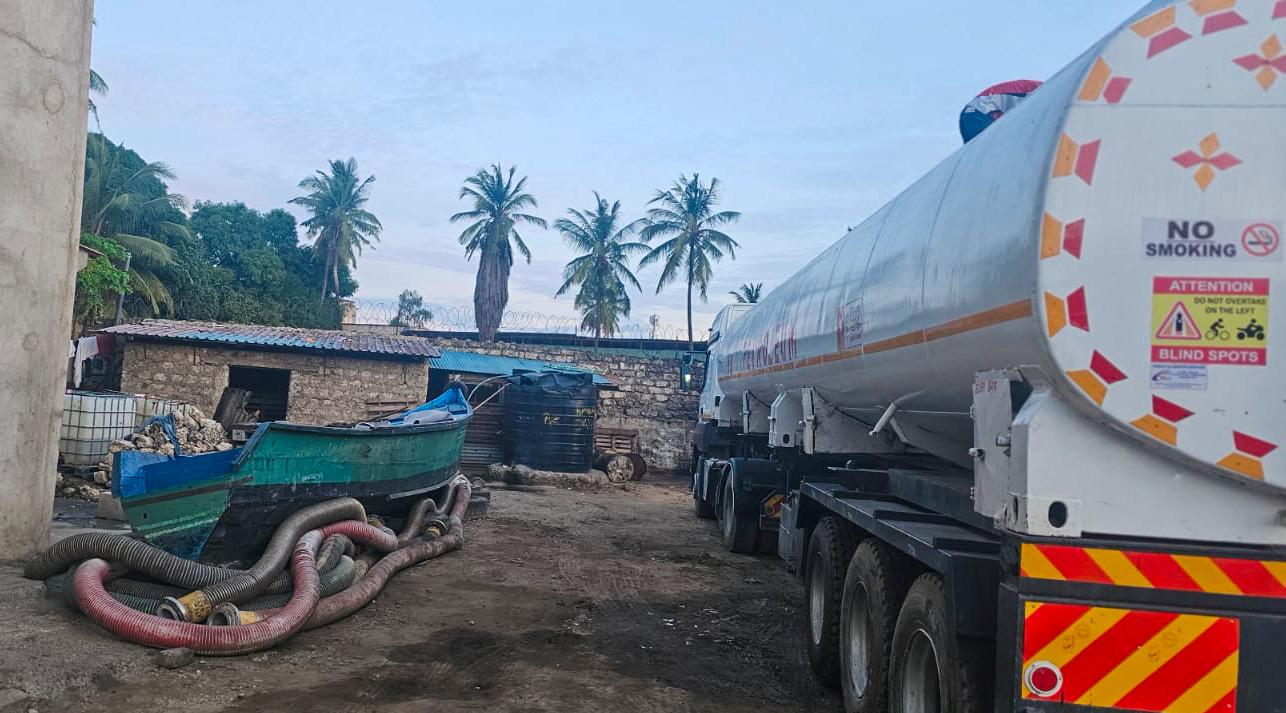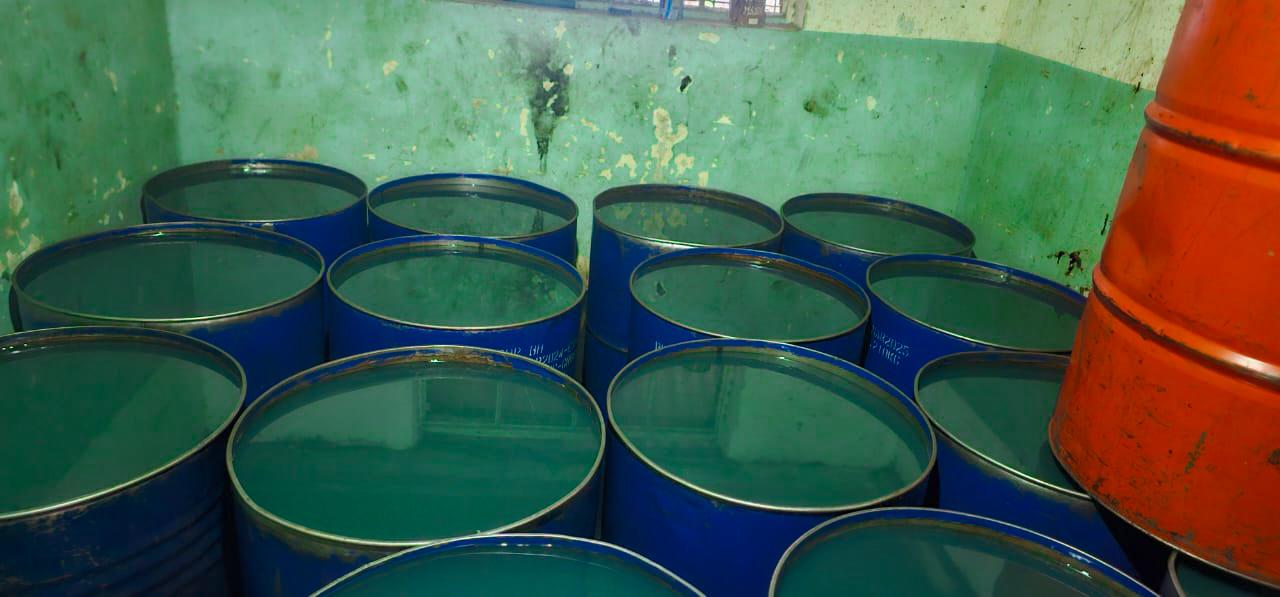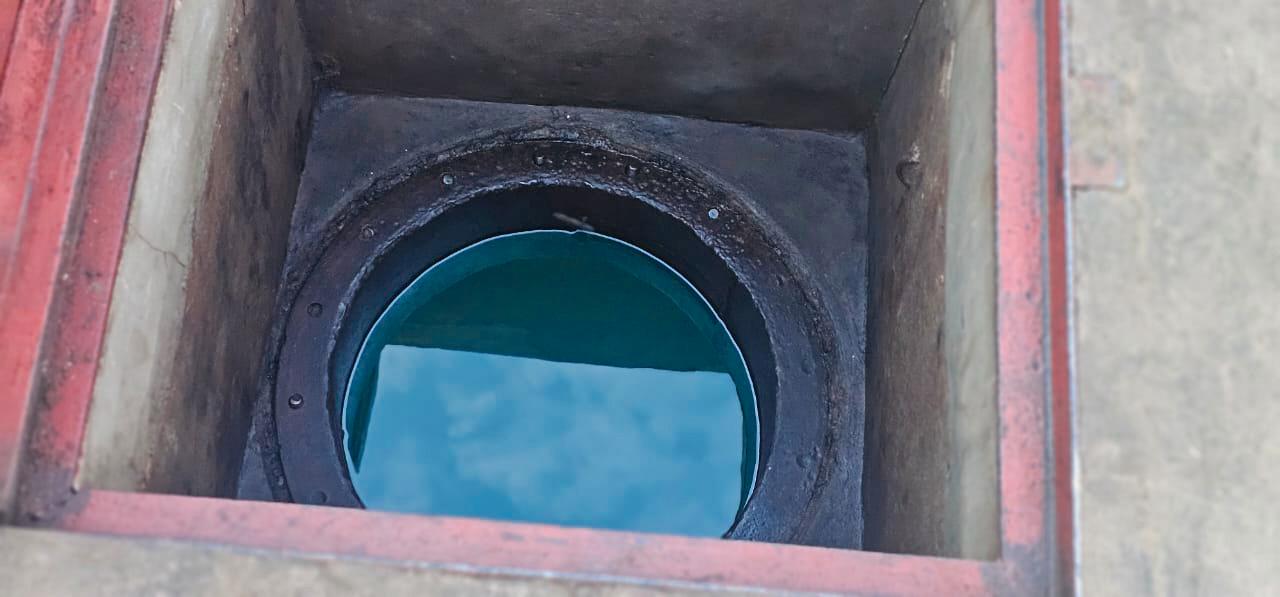
The National Police Service in partnership with the Energy and Petroleum Regulatory Authority -Epra - has intensified its crackdown on illegal fuel siphoning and storage operations in Mombasa.
A joint operation conducted on Wednesday, 28 May 2025, in the Port Reitz and Kenya Refinery areas led to the arrest of one suspect and the recovery of 17,000 litres of diesel and 1,360 litres of petrol stored within his compound in Port Reitz.
In a separate raid, officers discovered an additional 1,000 litres of diesel hidden in a makeshift iron-sheet structure near the refinery.
"The owner of this second site was not present during the raid and is currently being pursued by police. The arrested suspect was taken into custody, processed, and arraigned in court," NPS said in a statement.
The operation was spearheaded by Coast Regional Police Commander Ali Nuno and Epra Coast Region Manager Francis Keri.
All recovered fuel was seized and transported to the Port police station.
 Tanks full of siphoned fuel at a house in Mombasa. /NPS/X
Tanks full of siphoned fuel at a house in Mombasa. /NPS/XThe NPS issued a stern warning to the public, emphasising that unauthorised handling and storage of petroleum products not only violate national regulations but also endanger public safety.
Epra and the NPS have been actively working to combat fuel siphoning in Kenya, a significant concern, particularly in urban centres like Mombasa and Nairobi.
The illicit practice involves unauthorised extraction of fuel from vehicles, fuel depots, or pipelines, often for resale on the black market.
The practice is prevalent in areas with high vehicular activity and near fuel storage facilities.
Criminal syndicates often exploit lapses in security to siphon fuel, which is then sold illegally.
The Epra noted that such activities not only lead to revenue losses but also pose significant safety risks.
Siphoning can introduce contaminants into fuel systems, leading to engine malfunctions and increased maintenance costs.
Vehicle owners may also experience higher fuel expenses due to repeated thefts and higher insurance premiums or denial of claims, especially if preventive measures are deemed inadequate.
Risks to perpetrators
Improper handling and storage of siphoned fuel can lead to fires or explosions, endangering lives and property.
Prolonged exposure to fuel fumes in residential areas can also cause respiratory issues and other health problems.
Individuals caught siphoning fuel face legal penalties, including fines and imprisonment, as stipulated by law.
 An underground fuel tank, police say, is used to store siphoned fuel. /NPS/X
An underground fuel tank, police say, is used to store siphoned fuel. /NPS/X










